News
Citizenship for sale as Trump announces “Gold Card” Immigration Plan, $5M
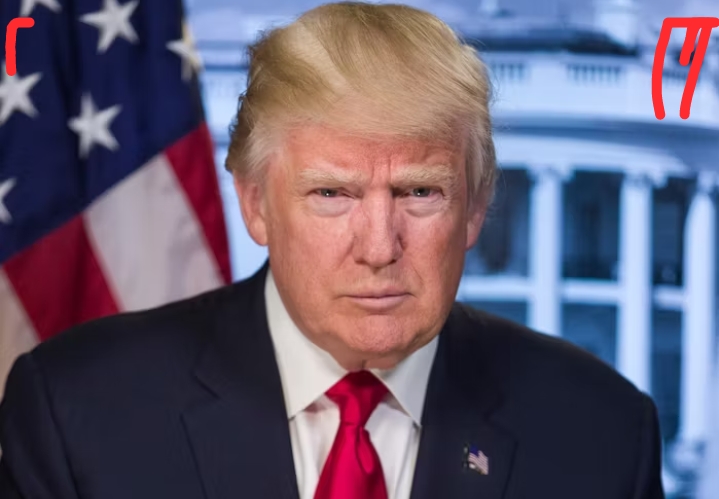
By Kayode Sanni-Arewa
President Donald Trump has announced a new immigration “Gold Card” that will be sold to immigrants for $5 million.
The Gold Card is a premium version of a Green Card, according to Trump, and will provide immigrants with a pathway to citizenship.
“We’re gonna be selling a gold card. You have a green card, this is a gold card. We’re gonna be putting a price on that card of about $5 million and that’s gonna give you green card privileges plus…”
“It’s gonna be a route to citizenship. And wealthy people will be coming into our country by buying this card.”
“They’ll be wealthy and they’ll be successful and they’ll be spending a lot of money and paying a lot of taxes and employing a lot of people.”
News
Olorogun Olori hails Wike’s political sagacity in South South
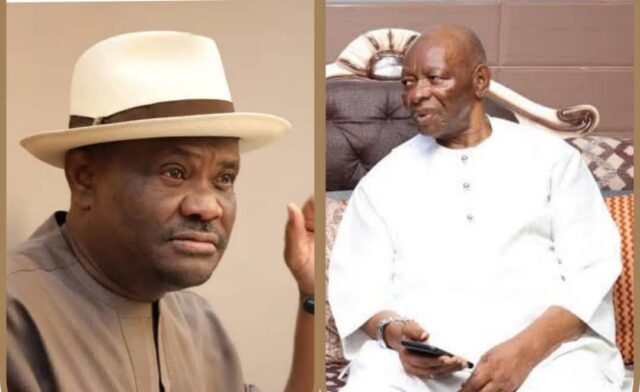
Elder statesman, Olorogun Morrison Olori, has hailed the Minister of the Federal Capital Territory, Chief Nyesom Wike, for his outstanding political leadership in the South-South region and his strategic role in advancing President Bola Ahmed Tinubu’s Renewed Hope Agenda.
Olori, an octogenarian and chieftain of the All Progressives Congress (APC) in Delta State, particularly praised Wike for his transformative work as Minister of the Federal Capital Territory (FCT).
In a statement made during a public policy dialogue in Abuja, Olorogun Olori hailed Chief Wike as “a tireless bridge-builder and result-oriented leader who has brought stability and strategic political direction to the South-South and beyond.”
Chief Wike has not only strengthened the political base of the South-South region but has also become a key player in driving the Renewed Hope Agenda of President Tinubu through inclusive governance and infrastructural transformation,” Olori said.
Highlighting Wike’s impact as FCT Minister, Olori pointed to the minister’s record-setting performance in the signing of over 5,000 Certificates of Occupancy, as well as his aggressive infrastructure renewal across the city, including road expansions, urban beautification, and housing developments. He described Wike’s efforts as “a masterclass in leadership and vision.”
“His work in Abuja has demonstrated that the Renewed Hope Agenda is not just a slogan—it is being implemented in concrete ways. He is delivering real, visible change,” Olori noted.
Olorogun Olori also emphasized Wike’s political courage in rallying support for national unity and economic revival, particularly in the South-South geopolitical zone, where he continues to serve as a stabilizing force and a voice of progress.
“Wike has used his influence not for personal gain, but to elevate the South-South and to help President Tinubu consolidate the gains of this administration,” Olori added. “This kind of partnership between the presidency and regional leaders is exactly what Nigeria needs right now.”
Olori, however, urged other political leaders to emulate Wike’s commitment to excellence and patriotism, emphasizing that Nigeria needs more leaders who “serve with sincerity and deliver with impact.”
News
Nigeria Felicitates with South Africa on 31st Freedom Day Anniversary

By Gloria Ikibah
Nigeria has congratulated South Africa on the celebration of its 31st Freedom Day anniversary, marking more than three decades since the end of apartheid rule.
This was contained in a statement issued by the Ministry of Foreign Affairs, on Sunday in Abuja, the Minister, Ambassador Yusuf Maitama Tuggar, extended warm greetings to his South African counterpart, His Excellency Ronald Lamola, Minister of International Relations and Cooperation.
Ambassador Tuggar described the day as a reminder of the historic victory of democracy over apartheid and a celebration of the resilient and unified spirit that continues to shape South Africa’s journey.
“Nigeria and South Africa share a profound bond forged through decades of solidarity in the liberation struggle. As we reflect on this milestone, we recall Nigeria’s unwavering support for the anti-apartheid movement, including diplomatic, material, and moral contributions that underscored our commitment to justice and the ethos of pan-Africanism,” the statement read.
Highlighting the strong bilateral ties between the two countries, Tuggar emphasized the shared responsibility Nigeria and South Africa have in promoting peace, security, and inclusive development across the African continent.
He noted that as Africa’s two largest economies and democracies, there is a need to strengthen collaboration in areas such as trade and investment through the African Continental Free Trade Area (AfCFTA), as well as cultural exchanges and youth empowerment.
“Therefore, on this Freedom Day, we stand with South Africa in honouring the sacrifices of heroes like Walter Sisulu, Nelson Mandela, Govan Mbeki, Thabo Mbeki and recommit to working together to realize the vision of a prosperous, peaceful, and united Africa,” he added.
News
Enugu Reps caucus backs concessioning of Enugu airport
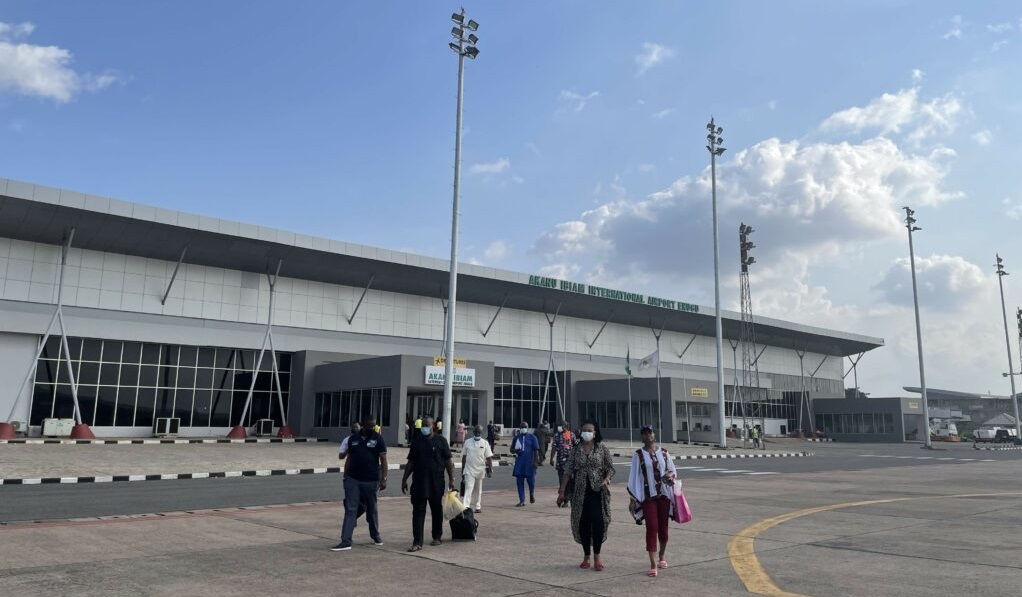
The Enugu Caucus in the House of Representatives has thrown its weight behind the Federal Government’s plan to concession the Akanu Ibiam International Airport, Enugu, describing it as a potential catalyst for the Southeast economy.
The caucus commended the Federal Government for the initiative and urged it to hasten the process to enable the people of the Southeast and the nation to benefit from it in earnest.
It also called on the people of the region to support the concession as the only way to guarantee sustainable investment to fully develop the airport into a truly international facility.
-

 News12 hours ago
News12 hours agoInsecurity: BUDA urges govt to quickly rescue Baruten from terrorists
-

 News18 hours ago
News18 hours agoJust in: Senator Natasha tenders satirical ‘apology’ to Akpabio
-

 News14 hours ago
News14 hours agoUNUSUAL! Without invitation, Police declared me wanted — Daughter of ABC Transport owner
-
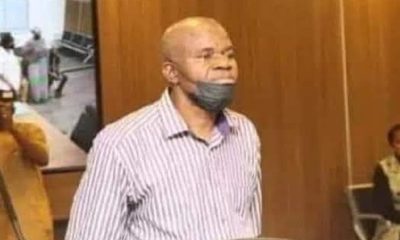
 News9 hours ago
News9 hours agoBreaking: Late gospel singer Osinachi’s husband sentenced to death by hanging
-
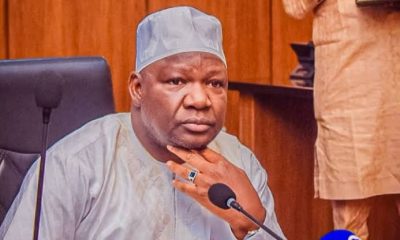
 News11 hours ago
News11 hours agoWeeks to 2nd anniversary, Niger deputy gov, plans to resign, move out personal effects
-

 Metro20 hours ago
Metro20 hours ago‘My husband always makes love throughout the night until morning’ – Woman Wants Divorce
-
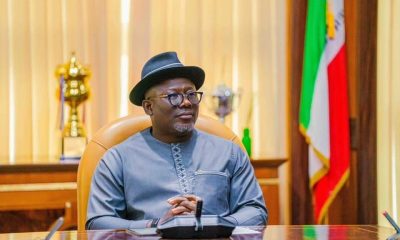
 News16 hours ago
News16 hours agoGov Oborevwori’s top aide suddenly resigns from govt
-

 Entertainment14 hours ago
Entertainment14 hours agoMy tongue slipped, Annie Macaulay apologizes after referring to Herself as ‘Idibia’ at Headies 2025
















